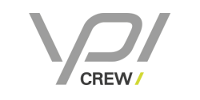Resettlement Success: From Royal Navy Weapons Engineer to Super Yacht Chief Engineer
Category: Success Stories
Publish date: 29/05/2019

 What were your main reasons for leaving the Service?
What were your main reasons for leaving the Service?
"I really enjoyed my time in the Navy as a Submariner onboard the Vanguard Class Submarines but noticed a few friends leave the Navy and move into the Yachting Industry. Watching them going into full rotation positions, gaining seafarers tax status, earning excellent salaries and seeing amazing parts of the world I thought to myself I think it’s time for a change".
What transferable skills did you have from the Navy?
"The major transferable skills taken from the Navy into yachting is the ability to work as a good team member, yachting is all about team work. The Engineering skills gained in the Navy help, the ability to work safely, to watch-keep vigilantly, to remain calm under pressure, learn all your systems and keep on top of your Planned Maintenance all go into becoming a good Chief Engineer in Yachting".
What aspects of the resettlement training/funding did you find useful to qualify as a Super Yacht Engineer?
"I used my ELCAS and resettlement money/leave to sit all three Y4 Modules, the AEC course and all my STCW Courses. I also attended the recruitment fairs where I met Jacqui at YPI Crew and my journey to Yachting Chief Engineer began".
How did you get your job and what was the interview/selection process like?
"I was placed on the Maltese Falcon as a 3rd Engineer by Jacqui, I had a week’s trial, the Chief and 2nd Engineer picked me out from the CV due to my electrical background, something they felt they needed in their team. On completion of the weeks trial I was asked to stay and become the 3rd Engineer. Once I achieved a higher chief engineer licence, I progressed to 2nd engineer on a 57m motor yacht and subsequently promoted to chief engineer where I have been working for the last 5 years".
What was the biggest thing you’ve learned from leaving the Navy and now working on board Super Yachts?
"My biggest shock was how old the Navy Engineering technology is, Yachting is cutting edge technology, I had to do a lot of personal research to quickly learn new systems, but I will say the hardest aspect of Engineering in the yachting industry is finding and sourcing parts. The Navy has a department dedicated to this. When you come into yachting this is all on you, something that is critical to the success of shipyards and fixing breakdowns during the season. Having a good planned maintenance system and well inventoried parts is critical to operating a Super Yacht well".
What advice would you give to other Service Leavers who are considering a long-term career in the Super Yacht Industry?
"Go for it, the rewards are huge, the experiences are amazing, the places you visit are exceptional, but just remember there’s nowhere to hide. On a typical 60m Yacht it will be you and a 2nd Engineer, you’re responsible for the safe operation of all systems on board. If anything breaks down all eyes are on you to fix the problem".
What are the best things about being a Super Yacht Engineer/working on-board Super Yachts?
"The best parts of yachting are the same as the best parts of the Navy, the friendships you make along the way".